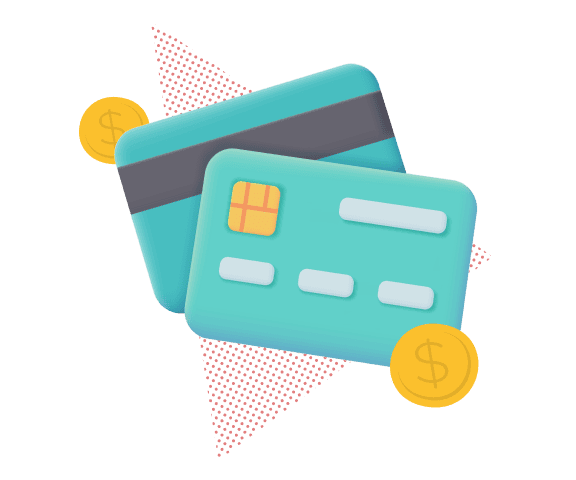Why Paying More Than the Minimum on Your Credit Card Is a Smart Move
Updated: 22 May 2025
Don't let your credit card debt snowball. You can save thousands of dollars and improve your credit score by paying more than the minimum. Here's how:
Written bySingSaver Team
Team
The information on this page is for educational and informational purposes only and should not be considered financial or investment advice. While we review and compare financial products to help you find the best options, we do not provide personalised recommendations or investment advisory services. Always do your own research or consult a licensed financial professional before making any financial decisions.
Paying just the minimum might keep your card active, but it’s like treading water — you’ll never really get anywhere; And with credit card interest rates in Singapore hovering around 25% to 28% p.a., your leftover balance can grow faster than a queue for a 1-for-1 bubble tea promo.
If you want to save money, avoid debt traps, and maybe even afford that Bali getaway you've been dreaming about, it's time to do better than the bare minimum. Here’s why.
1. Save money by paying less interest
Credit card interest in Singapore isn’t cheap — most banks charge around 26% p.a. If you only pay the minimum each month, most of it goes to interest, not your actual debt.
For example:
Say you owe $5,000.
-
Minimum payment (3%) = $150.
-
Pay just $150 every month? You'll stay in debt for years and pay thousands in extra interest.
-
Pay $300 instead? You'll finish much faster and save a ton on interest.
Even an extra $50–$100 a month makes a big difference. Start small if you need to — your future self will thank you.
» MORE : How to avoid or reduce interest charges on credit card
Credit card negative balance: What it means (and why it's not a bad thing)
Got a negative balance on your credit card? Relax — your bank actually owes you money. Here’s why it’s a rare financial win you’ll want to celebrate.
2. Improve your credit score faster
Your credit utilisation ratio is how much you owe compared to your credit limit. Ideally, it should stay under 30%. Think of your credit utilisation like your reputation — the lower it is, the better you look to banks and lenders.
Example: Got a $10,000 limit? Try to keep what you owe under $3,000.
Paying more than the minimum brings your balance down faster. This improves your credit score and makes it easier to get approved for things like personal loans, car loans, and even home mortgages.
3. Avoid maxing out your card and stressing out
Maxing out your credit card isn’t just stressful — it can seriously hurt your credit score and make banks wary about lending you more money in the future. Staying comfortably below your credit limit shows that you're managing your finances responsibly, and it keeps your borrowing reputation squeaky clean.
By paying more than the minimum each month, you lower your balance faster and create breathing space on your card. That way, you avoid hovering dangerously close to your limit — and protect your credit health at the same time.
4. Unlock better card perks and credit limits
Banks love customers who pay responsibly. If you consistently pay more than the minimum, you could unlock perks like higher credit limits, better card offers, or even an upgrade to a premium card. Some cardholders who maintain low balances and good payment history have been upgraded to miles cards or cash rebate cards with better benefits.
If you’ve recently slipped up with a late payment, consider emailing or calling your bank to explain your situation. Sometimes, a little proactive communication can go a long way!
5. Keep your grace period and enjoy interest-free shopping
Most credit cards in Singapore give you a grace period of around 20 to 25 days where you won’t be charged interest on new purchases. But there’s one important rule: you must pay your full statement balance on time.
If you only pay the minimum, you lose that interest-free window. That means every new swipe starts racking up interest immediately, and your shopping gets a lot more expensive.
Start by paying a bit more each month. The closer you get to clearing your full balance, the sooner you’ll enjoy interest-free shopping again.
The bottom line: Small extra payments = big savings
Always pay at least the minimum to stay in good standing — but aim to do more when you can. Paying more reduces your interest, protects your credit score, and gets you out of debt faster. Even an extra $50–$100 monthly can save you hundreds (or thousands) over time.
Not sure where to start? Try using free budgeting tools to track your spending, set payment goals, and watch your progress grow. Every extra dollar you put towards your balance gets you closer to true financial freedom.
About the author
SingSaver Team
At SingSaver, we make personal finance accessible with easy to understand personal finance reads, tools and money hacks that simplify all of life’s financial decisions for you.
